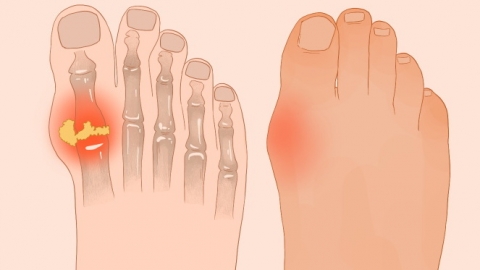What does it mean if blood uric acid levels are high?
Generally, high uric acid levels detected in blood tests may be caused by excessive intake of high-purine foods, excessive alcohol consumption, hyperuricemia, gout, chronic kidney disease, and other factors. It is recommended to seek timely medical consultation to identify the specific cause and receive appropriate treatment under a physician's guidance. Detailed analysis is as follows:

1. Excessive intake of high-purine diets: Long-term heavy consumption of high-purine foods such as animal offal, seafood, and concentrated meat broths can increase uric acid production during metabolism, leading to elevated uric acid levels in blood tests. Adjust dietary patterns by reducing intake of high-purine foods and consuming more low-purine foods such as fresh vegetables, fruits, and grains.
2. Excessive alcohol consumption: Alcohol inhibits uric acid excretion. Particularly, beer contains high levels of purines, which can lead to uric acid accumulation in the body after drinking, causing elevated uric acid levels. Strictly control alcohol intake; ideally, abstain from alcohol completely. If unavoidable, limit frequency and quantity of consumption, and avoid beer and rice wine.
3. Hyperuricemia: When the body produces excessive uric acid or excretes insufficient amounts, uric acid levels in the blood remain persistently elevated, which may present without obvious symptoms or with mild joint discomfort. Patients should follow medical advice to take medications such as allopurinol tablets, febuxostat tablets, and benzbromarone tablets to lower uric acid levels.
4. Gout: If hyperuricemia remains uncontrolled over a long period, uric acid crystals may deposit in the joints, leading to gout, accompanied by redness, swelling, and pain in the joints. Uric acid levels are significantly elevated during blood tests. During acute episodes, patients may follow medical instructions to use medications such as colchicine tablets, ibuprofen sustained-release capsules, and diclofenac sodium sustained-release tablets to alleviate pain.
5. Chronic kidney disease: The kidneys are the main organs responsible for uric acid excretion. Patients with chronic kidney disease often have impaired renal function, leading to hindered uric acid excretion and elevated blood uric acid levels, accompanied by symptoms such as fatigue and edema. Patients should follow medical advice to use medications such as sodium bicarbonate tablets, febuxostat tablets, and uremic clearance granules to improve kidney function and promote uric acid excretion.
In daily life, maintain a regular routine, avoid excessive fatigue, engage in low-intensity exercises such as walking and jogging to enhance physical fitness. Control body weight to prevent obesity, reduce consumption of high-sugar and high-fat foods, and manage uric acid levels comprehensively to maintain metabolic health.




